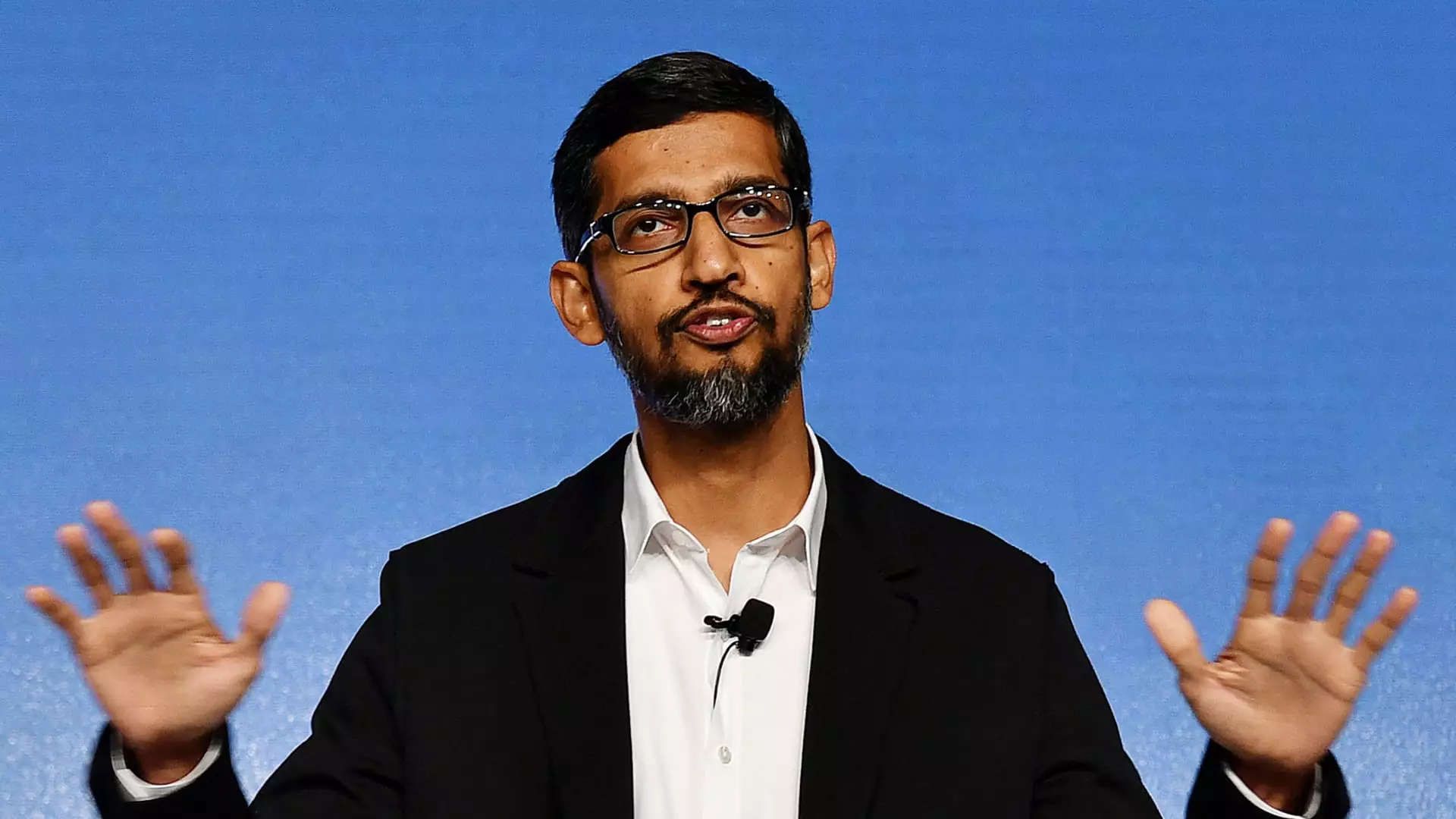As one of the most influential technology companies in the world, Google faces the significant challenge of balancing its corporate culture with the diverse political views of its employees. Recently, the company has taken steps to restrict political discussions in internal forums, reflecting a growing tension between freedom of expression and the desire for a workplace free from divisive debates. This article delves into Google’s ongoing efforts to moderate such conversations and the implications of these policies for its workforce.
In the lead-up to the U.S. elections, Google’s executives issued a clear and firm guidance around the discussion of political topics within its internal platforms. According to communications obtained by CNBC, employees were cautioned to steer clear of political opinions on Memegen, an internal forum popular for sharing memes and light-hearted content. Despite these warnings, many employees felt compelled to voice their opinions through humorous memes, signaling a discontent with the restriction of political expression.
The push for moderation stems from a broader effort within Google, which has seen escalating internal dissent regarding various policies and contracts—most notably, Project Nimbus. This massive cloud computing deal with the Israeli government has drawn criticism and spurred calls for open dialogues about corporate ethics in government contracts. As a result, Google’s leadership has sought to curb discussions that could escalate into divisive or inflammatory debates among its diverse workforce.
Google’s CEO, Sundar Pichai, emphasized the company’s responsibility to deliver “high-quality and reliable information” to users globally. Pichai’s internal memo highlighted the need for employees to remain focused on their roles and responsibilities rather than participating in potentially contentious political discussions. By framing the issue as a matter of public service and trust, Pichai aimed to steer the company’s culture toward a sense of collective purpose—one that transcends personal or political agendas.
However, this approach has provoked pushback from employees who argue that such restrictions are excessively broad and stifle fundamental rights to free speech. Some employees perceive the moderation policies as a top-down directive that disregards the diversity of opinions essential for a vibrant workplace culture. This tension between leadership’s direction and employee autonomy is indicative of larger systemic issues within corporate environments, especially in tech, where innovation and diverse perspectives are often heralded yet can be constrained by overarching policies.
Google’s previous attempts to shape the internal discourse began back in 2019 when it unveiled a policy that prohibited statements deemed to “insult, demean, or humiliate” others. This initiative was met with mixed responses from the workforce, illustrating a significant cultural shift away from open debate toward a controlled conversational environment. In 2020, the corporation expanded its regulations on political content, which included both proactive measures for moderating discussions and the use of algorithms to detect inappropriate posts.
The recent directives have further intensified scrutiny of Google’s internal communication practices. Employees are now informed that breaching the guidelines three times may result in expulsion from Memegen. This approach signifies an effort to cultivate a corporate culture that discourages divisive discussions while emphasizing the company’s overarching mission.
Yet the implementation of such stringent rules can lead to quiet dissent among employees who believe the company’s actions could impact their rights under the National Labor Relations Act. Following a settlement with the U.S. National Labor Relations Board, Google was mandated to publicly share employee rights, including the right to engage in discussions about work conditions. The contradiction between these rights and the internal policy restrictions raises critical questions about the balance of power in the workplace.
As Google continues to navigate these complex dynamics, it must also consider the potential repercussions of its internal content moderation policies. Limiting political discourse can create an environment where employees feel disallowed from sharing authentic perspectives, ultimately undermining trust and engagement. A workplace that stifles discourse may alienate individuals who value open dialogue as a means of collaboration and problem-solving.
Moreover, the advent of artificial intelligence tools for moderating internal conversations could further complicate interactions among employees. The introduction of AI in these settings raises ethical questions about the accuracy of moderation practices and the possibility of misinterpretations leading to unjust reprimands. Such measures could risk fostering an atmosphere of fear where employees might think twice before expressing their opinions or engaging in discussions that fall within the grey areas of corporate policies.
In a rapidly changing political landscape, companies like Google are rightly concerned about the implications of political discussions for their brand reputation and public trust. However, it’s essential for leaders to find a balance that allows for employee expression while maintaining a professional environment. Encouraging open dialogue and engagement is critical for fostering a culture of innovation and trust, especially in an industry that thrives on differing viewpoints and creativity.
In navigating this complex terrain, tech giants must recognize that their policies can significantly shape employee satisfaction and retention. The interplay between political discourse and corporate governance highlights a crucial challenge: how can companies cultivate a culture that values inclusivity while also managing the potential divisiveness of political discussions? Addressing this question thoughtfully will be paramount for Google’s continued success and employee morale moving forward.

